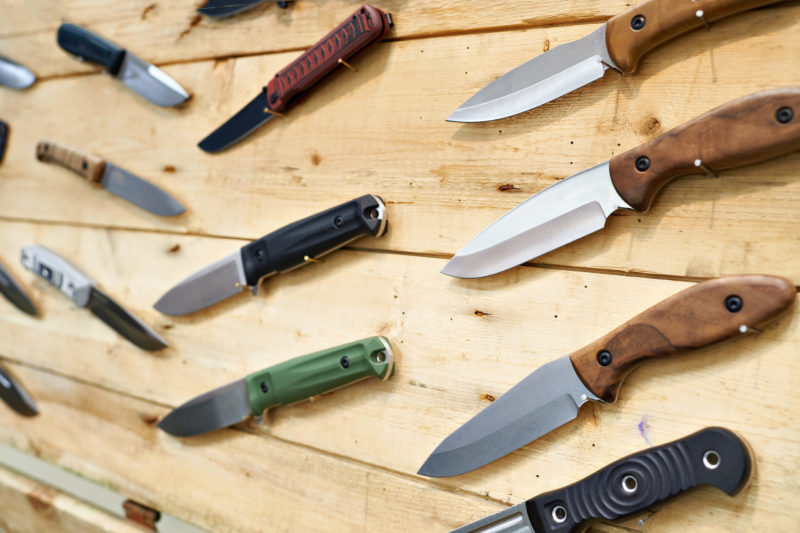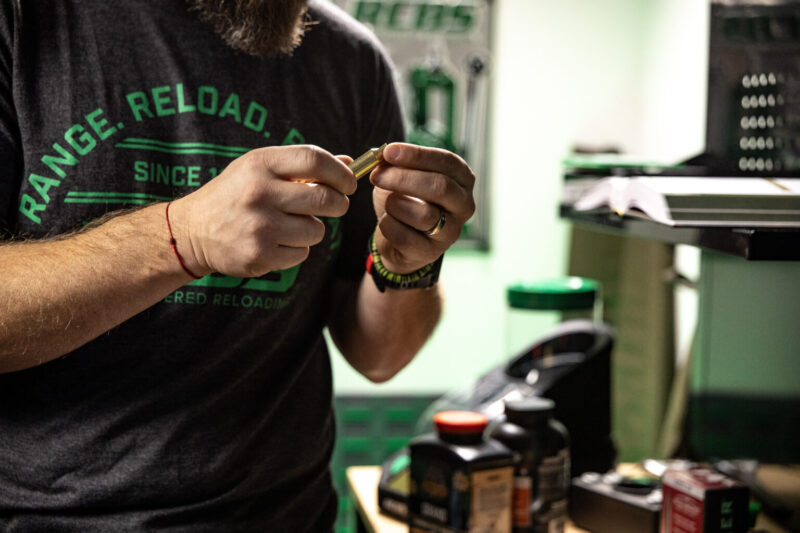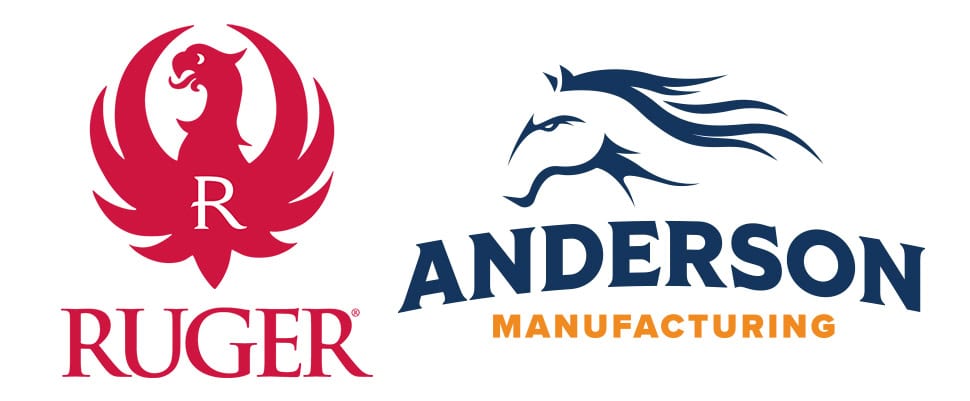What's Next For Knife
Commerce In The U.S.?
Ask just about any CCW holder for a “pocket dump” and part of their daily carry inevitably consists of a pocket knife. While the rights surrounding firearm and knife ownership are treated differently, limitations on one will often have an impact on the other.
One organization committed to being a reasonable and responsible voice in the knife community is the non-profit American Knife & Tool Institute (AKTI). Shooting Industry sat down with Buck Knives Chairman and CEO CJ Buck, who serves as the chair of the AKTI legislative committee and is an AKTI board of regent member, to learn about the political wins and headwinds facing the knife community — as well as how storefront dealers can join the fight.
Impact Of Big Wins
SI: There have been some big wins for knife ownership in Pennsylvania and Virginia recently. Will they have an impact nationally, and what do they say about the state of firearms commerce and carry in the U.S.?
Buck: For 12 years, AKTI has been at the forefront of efforts in Pennsylvania to remove the state’s prohibition on the manufacture, sale and possession of automatic knives. We’re pleased to report Oct. 26, the Pennsylvania Senate passed HB 1929 with a bipartisan vote of 50-0. This vote is the culmination of extensive legislative efforts that also resulted in unanimous votes in both the House and Senate Judiciary Committees and House passage with just one “no” vote. The bill now goes to Gov. Tom Wolf’s desk for final approval. AKTI has already met with Gov. Wolf’s staff, and will continue to lead advocacy efforts with the Executive Branch.
Virginia’s recent success was the elimination of the prohibition pertaining to the sale, transfer or possession of automatic knives. It became effective July 1, 2022. We need to credit AKTI member Blue Ridge Knives, who took the leadership role in on-the-ground work to ensure their home state passed this legislation.
Nationally, a phenomenon is discernible. New Hampshire removed its automatic knife prohibition in 2010, and 18 states similarly removed automatic knife restrictions in the ensuing 12 years. It is becoming increasingly obvious the “switchblade” prohibition stampede of 1951–1959, which included the Federal Switchblade Act of 1958, was based on entertainment industry sensationalism and political pandering.
New Headwinds
SI: What new developments has AKTI observed — from consumer preferences to how antis are targeting the knife industry? How does this impact the broader shooting, hunting, and outdoor industry?
Buck: A Venn Diagram of the shooting and knife communities would show a large overlap. People who carry knives value self-reliance, individual freedom and autonomy. The same people favor access to firearms. AKTI has not observed opposition to the removal of knife restrictive laws from entities that are not also anti-firearm.
An example is a meeting AKTI had with the U.S House Judiciary Committee staffers in 2020 when NY Rep. Jerry Nadler was chairman. The AKTI initiative to establish a federal law protecting interstate travelers with knives — similar to the “Firearms Owners’ Protection Act” — was pending before that committee. AKTI’s proposed bill was not a mirror image of the firearms law, as there are notable differences between firearms and knives. They flatly refused to consider any such provisions and stated if the same were allowed, the NRA would demand the same benefit. The bill died in that committee.
In the last 30 years, the knife industry has seen a dramatic interest from consumers in one-hand opening folding knives. These knives are safer to carry and bring a high degree of utility to so many situations. Automatic knives were common for the first half of the 20th century, and their convenience and utility is being rediscovered as restrictive laws are repealed.
Firearm dealers who do not already see knives as a complementary product line should consider them as a growth opportunity.
Impact Of Bruen Decision On Knife Ownership
SI: What does AKTI forecast as the next major challenge(s) facing the rights of consumers facing the choice to carry their knives in the U.S.? How will the midterm elections impact the rights of knife owners?
Buck: The challenges keep coming. The recent decision by the U.S. Supreme Court in the Bruen case unequivocally held weapons in “common use” are protected arms under the Second and Fourteenth Amendments to the Constitution. The Bruen opinion states daggers or knives carried by “almost everyone” in the medieval period “strike us as most analogous to modern handguns.”
Their point was carrying knives has long been a lawful common practice, but the essential holding of Bruen is that states — and the federal government — may regulate how protected weapons are carried and the carry of weapons in “sensitive spaces.” Thus, concealed carry may be restricted provided that open carry, or vice versa, remains an option.
We’re also keeping tabs on various states that include definitional and dimensional criteria in public carry statutes that create practical prohibitions. For instance, it is unlawful in Delaware and Rhode Island to conceal carry any pocket knife with a blade length exceeding 3″. How does one openly carry a pocket knife of that size? We stand ready to provide industry-wide leadership on such restrictive and arbitrary laws.
Some states use vague, undefined and widely misunderstood terms such as “bowie knife” and “dirk” in restrictive statutes. This ambiguity has an unconstitutional chilling effect and allows for discriminatory enforcement. We believe codifying a set of objective physical criteria to replace archaic terms in knife definitions is vital moving forward.
Another issue is the “blacklisting” of businesses that serve the gun and knife communities, along with civil litigation intended to bankrupt and destroy such businesses that are non-governmental threats. We have a committee within AKTI that monitors such activities.
AKTI is always looking to the future, including the next generation of knife users. As for the upcoming midterm elections, we’ve worked hard for 25 years to be in a nimble position of advocacy for the knife industry regardless of the politics. AKTI’s mission is to educate, promote and inform with respect to knives. This includes reminding all — especially legislators — people have various rights, including freedom from arbitrary, discriminatory and vague laws, as well as a right to due process.
Getting Involved
SI: How can dealers become educated or involved in joining AKTI’s advocacy efforts?
Buck: Dealers are encouraged to review the vast resources available on the American Knife & Tool Institute’s website (AKTI.org). They can become educated on state knife laws, review articles to help them understand knife laws and follow the initiatives we are working on to help strengthen the industry.
We would appreciate dealers’ participation in our just-launched online Social Media Questionnaire. AKTI recently started this initiative to find a path to remove or reduce the suppression of knife businesses’ social media accounts.
There are numerous other ways dealers can get involved and promote AKTI’s efforts to advocate for the industry: Join as a member, encourage customers and email lists to sign up for AKTI’s emailed news and legislative updates, distribute AKTI materials, and, of course, we can always use contributions to help fund legislative initiatives.
For more info, visit akti.org.






